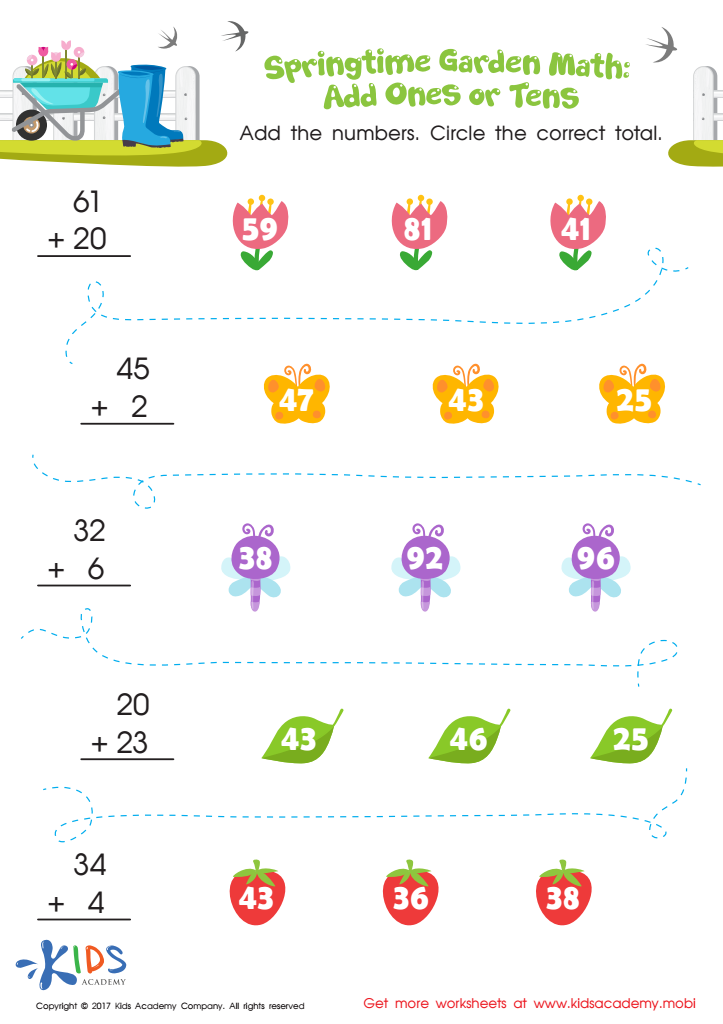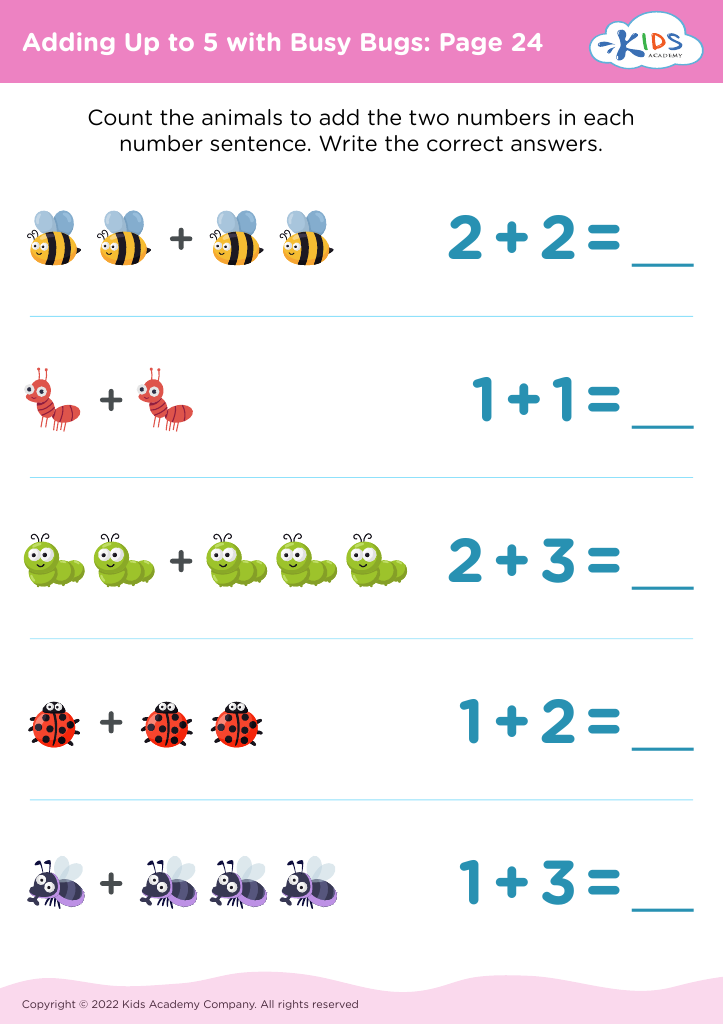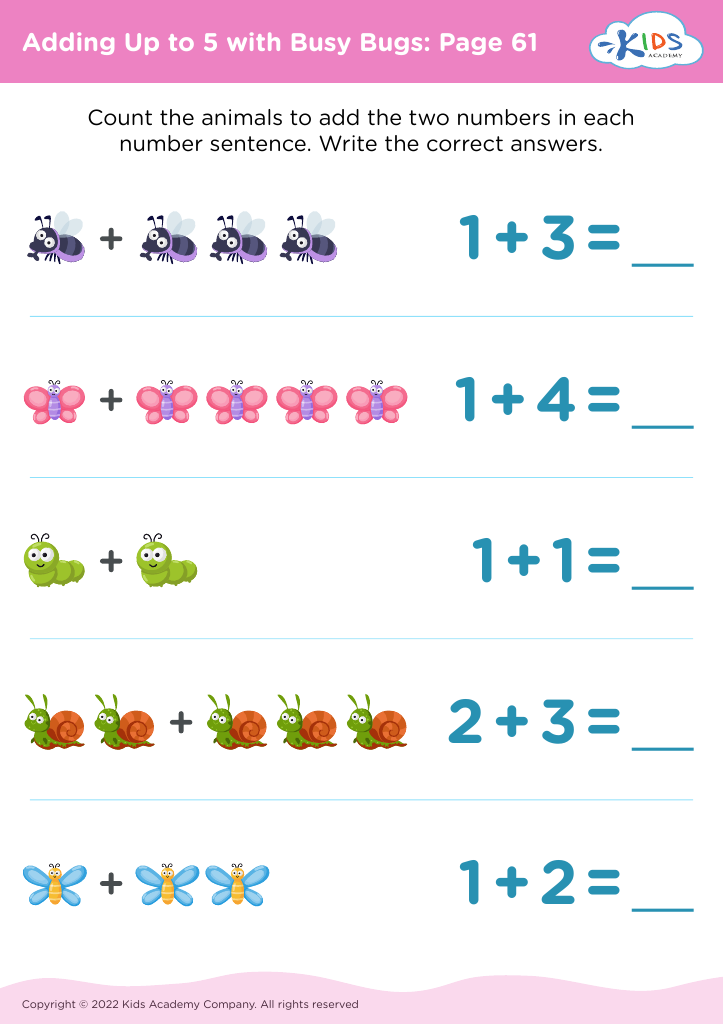Visualization skills Math Worksheets for Ages 4-5
3 filtered results
-
From - To
Enhance your child's mathematical understanding with our Visualization Skills Math Worksheets designed for ages 4-5. At Kids Academy, our expertly crafted worksheets make learning fun and engaging by combining vibrant graphics with age-appropriate math activities. These worksheets help young learners develop essential visualization skills, laying a solid foundation for future mathematical concepts. With diverse exercises ranging from counting and shapes to basic addition, children build confidence while enhancing their problem-solving abilities. Perfect for preschoolers and kindergarteners, our printables are ideal for at-home practice or classroom use, ensuring your child's math journey begins with a strong start.


Springtime Garden Math Worksheet
Visualizing math concepts is fundamental for children aged 4-5, as it paves the way for their understanding of more complex ideas in the future. Engaging young learners in visualization helps them grasp abstract concepts by making them concrete and easier to manipulate. When children see and touch objects, they are better able to comprehend basic mathematical principles such as counting, sorting, and recognizing shapes and patterns.
For parents and teachers, fostering visualization skills means promoting cognitive development, as children learn to connect visual information with real-world experiences. This development enhances spatial reasoning, which is crucial not only for math but also for subjects like science, engineering, and everyday decision-making.
In practical terms, visualization can make learning enjoyable and interactive. Activities like drawing shapes, using building blocks, or playing with puzzles provide tactile experiences that reinforce learning in a meaningful, memorable way. Additionally, early success in math builds confidence, setting a positive tone for future learning.
Ultimately, emphasizing visualization in early math education gives children a strong foundation, contributing to their overall academic success. By investing attention and resources in these skills, parents and teachers can ensure children are well-prepared for the academic challenges ahead, fostering a lifelong fascination and competency in math.


 Assign to My Students
Assign to My Students




















